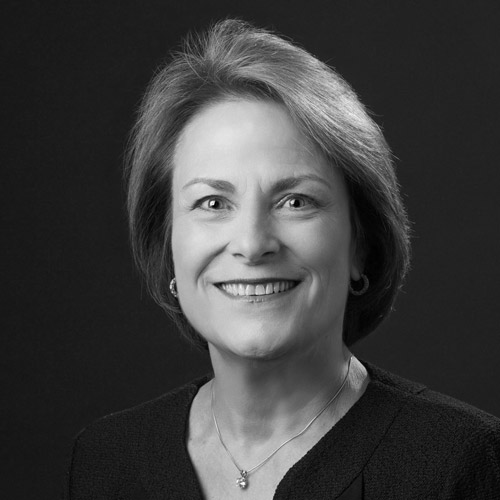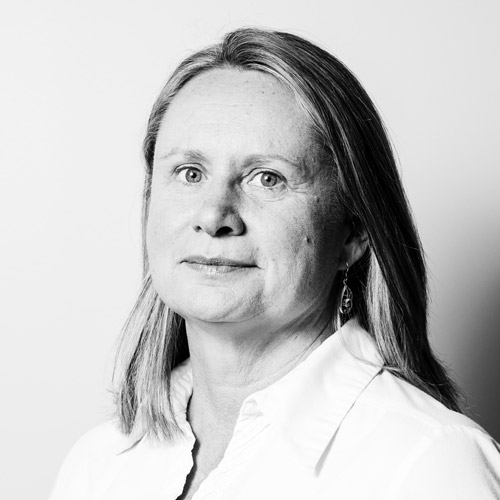Some challenges are greater than others, but no matter the size there is always a choice: to learn and progress, or to allow them to become barriers to growth. Few people will face as many unique challenges as Kal Mistry has over her life and career, and even fewer will choose to courageously approach them as opportunities.
Mistry is of Indian decent, born in Uganda to affluent, well-educated parents. When she was young, her family fled East Africa as refugees and moved to a small town in England, where most inhabitants had never seen a person of color. “I remember walking across the football field on my way to school and hearing, ‘Hey, Paki, go back to your home,’” she says. “I wasn’t even from Pakistan! But experiencing that kind of discrimination changes you.”
Immersed in a new culture, Mistry worked to become acquainted with her new environment. She listened to the way people talked and learned new ways of communicating. At a young age, she began constructing a broader understanding of the world and a more well-rounded perspective of people. Without realizing it, Mistry’s training in human resources had begun.
It continued in an official capacity at the University of East London, where she earned a BA in human resources management and labor relations. Not long after that came her next real-life course in adaptability, when she immigrated to the United States to begin a new life in another country while adapting to a new culture and balancing motherhood. But among all the happy newness was a heartbreaking challenge.
“Leaving an abusive relationship with two little children and nowhere to go was the most impactful challenge of my life,” Mistry says. “There is nothing quite like encountering a situation where your basic needs are unmet and you don’t know how they will be.” With no money and only a few clothes, she approached a neighbor to ask for help and was connected with a friend who had extra space. She stayed for a few weeks until her parents came from England to help her start a whole new life from scratch—again.
“If I started with nothing and made it here, I know I can do anything.”
Mistry landed an entry-level administrative job at a temporary job-placement agency, but was soon offered a human-resources position at one of the agency’s clients, Capital Bank. It didn’t take long to move up to VP of human resources, and seven years later, she was recruited by FPA Medical Management to develop their HR department. When they merged with a larger company, Mistry was accepted as national VP of human resources, and under her leadership, FPA grew from 700 employees in 1996 to more than 8,000 within eighteen months.
In 1999, Mistry joined the School Board of Broward County as associate superintendent of human resources. She spent three years overseeing all areas of human resources for the large and diverse population of 260,000 students and 28,000 employees. But in 2002, Mistry decided it was time to move out of the public sector.
When the recruiter came from VITAS Healthcare Corporation, Mistry was intrigued. “I didn’t know much about hospice care at the time,” she says. “But I was amazed by VITAS’s mission to take care of patients and their families at one of the most important times in life—when they are preparing to die.” She accepted the position as VP of human resources and has seen the number of employees nearly triple, from 4,000 to 11,600, over the fourteen years since then. “It’s been the best decision I’ve ever made and I’ve never looked back.”
VITAS Healthcare Corporation is the largest hospice care provider in the United States and a subsidiary of Chemed Corporation. Mistry takes pride in the company’s compassionate approach, providing in-home care to patients and their families. She also values the employee-oriented company culture that encourages everyone to provide the highest level of care daily. “But at the end of the day, it’s about the patients,” she says. “I may not see them every day, but what I do supports the mission of the company by supporting our employees.”
Hardships present a choice: to approach them either as roadblocks or as stepping stones. For Mistry, approaching every obstacle as a way forward has allowed her to become the compassionate and empathetic leader she is today.
“My goal has become to learn from each experience,” she says, “and as a result, I can more easily relate to others because everyone has problems.” At the same time, her experiences have cultivated strength, courage, determination, and willpower that allow her to be an assertive leader and accomplish goals. “If I started with nothing and made it here, I know I can do anything.”
But the winning combination in leadership and life is holding compassion and strength in tandem while honoring time to care for the soul.
“These are qualities that help us discover our purpose and keep us from getting caught up in the craziness around us,” she says. “Truly cherishing life is particularly important for those who work toward VITAS’s mission to preserve the quality of life for those who have limited time to live.
For Mistry, leading and managing the human-resources function at VITAS is the perfect opportunity to provide innovative solutions to human-capital initiatives as well as helping people—families, communities, and others around the world—as they make the most of whatever life they’ve been privileged to live. AHL


